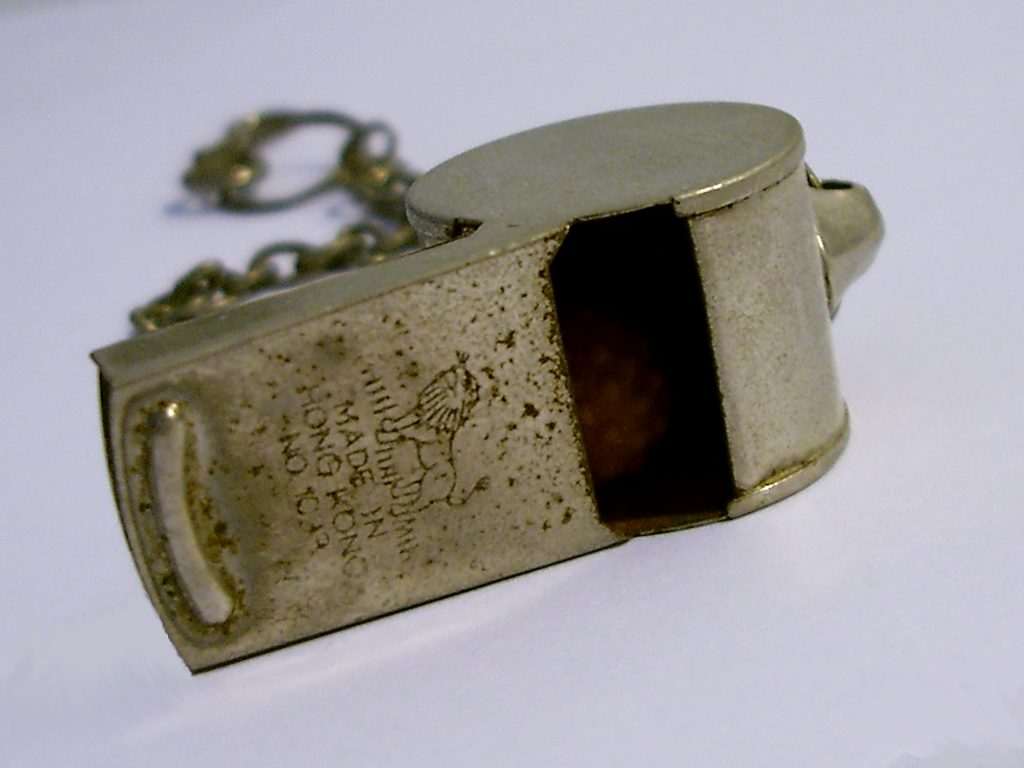 As if having car troubles was not bad enough, imagine also losing your toe in the process. Well, that exact scenario happened to Valerie Babin. After her vehicle broke down in Gonzales, Louisiana, Ms. Babin called American Towing Enterprises to tow her vehicle. An American Towing Enterprises’s employee, Floyd Russo, arrived to help Ms. Babin. At this point, Ms. Babin’s day went from bad to worse. As Mr. Russo partially loaded the vehicle onto the truck’s flatbed, Ms. Babin went to turn off her vehicle’s emergency flashers. At the same time, Mr. Russo lowered the truck bed, which landed on Ms. Babin’s foot, crushing her big toe. Despite attempts to save her big toe, Ms. Babin eventually required surgery to remove it.
As if having car troubles was not bad enough, imagine also losing your toe in the process. Well, that exact scenario happened to Valerie Babin. After her vehicle broke down in Gonzales, Louisiana, Ms. Babin called American Towing Enterprises to tow her vehicle. An American Towing Enterprises’s employee, Floyd Russo, arrived to help Ms. Babin. At this point, Ms. Babin’s day went from bad to worse. As Mr. Russo partially loaded the vehicle onto the truck’s flatbed, Ms. Babin went to turn off her vehicle’s emergency flashers. At the same time, Mr. Russo lowered the truck bed, which landed on Ms. Babin’s foot, crushing her big toe. Despite attempts to save her big toe, Ms. Babin eventually required surgery to remove it.
Ms. Babin filed a lawsuit against Mr. Russo and American Towing Enterprises. At trial, the court awarded $673,380.35 in damages, finding Mr. Russo and American Towing Enterprises 60% at fault and Ms. Babin 40% at fault. When the injured individual is found partially at fault for his or her injury, his or her damages are reduced by the amount he or she was at fault. In Ms. Babin’s case, her fault reduced the total amount of damages to $404,028.21. Ms. Babin appealed the trial court’s determination of damages, claiming that the awarded amount was insufficient. Conversely, Mr. Russo and American Towing Enterprises appealed the trial court’s determination claiming that the amount awarded was excessive.
The Louisiana Court of Appeals (“the Court”) was tasked with determining whether the damages were insufficient or excessive. The Court examined two types of damages, general damages, and special damages. General damages often include mental or physical pain, suffering, inconvenience, loss of gratification or intellectual or physical enjoyment, or other losses of lifestyle. McGee v. A C And S, Inc., 933 So. 2d 770, 774 (La. 2006). The goal of general damages is to make the injured party whole. In other words, put the injured party in the same position he or she was at prior to the injury. Special damages are damages that the injured person will experience in the future. Ms. Babin argued that at minimum she should have received $400,000 for general damages and $557,028 in special damages for future medical care. The Court found that the trial court’s determination of general and special damages was reasonable. When addressing the amount of special damages for future medical care, the Court noted that the trial court awarded Ms. Babin $223,77.00 based on the testimony of two doctors at trial. When seeking future medical expenses, “the appellate record must establish that future medical expenses will be necessary and inevitable.” Bass v. State, 167 So. 3d 711, 716 (La. 2014). In addition, future medical expenses will not be supported when there is not medical testimony. The Court found the trial court’s determination of special damages was reasonable and disregarded the defendants’ argument that the awarded amount was unsupported by evidence. Lastly, the Court examined the loss of future wages. The loss of future wages requires the trial court to determine how much work the injured party will miss in the future because of his or her injury. For Ms. Babin, the trial court determined that Ms. Babin will lose $81,735.00 in future wages. The Court also found this amount reasonable.
 The National Flood Insurance Program, or NFIP, was Congress’ approach to providing flood coverage at affordable rates. Generally, through the program homeowners can buy a Standard Flood Insurance Policy, or SFIP, from the Federal Emergency Management Agency, or from private insurers. According to the Court of Appeals for the Fifth Circuit, the SFIP outlines the conditions and requirements under which federal funds may be distributed to eligible policyholders. See Marseilles Homeowners Condo. Ass’n, Icn. v. Fidelity Nat’l Ins. Co., 542 F.3d 1053, 1054 (5th Cir. 2008). It is these requirements, or rather not following them to the letter, that sometimes stop homeowners from receiving their coverage.
The National Flood Insurance Program, or NFIP, was Congress’ approach to providing flood coverage at affordable rates. Generally, through the program homeowners can buy a Standard Flood Insurance Policy, or SFIP, from the Federal Emergency Management Agency, or from private insurers. According to the Court of Appeals for the Fifth Circuit, the SFIP outlines the conditions and requirements under which federal funds may be distributed to eligible policyholders. See Marseilles Homeowners Condo. Ass’n, Icn. v. Fidelity Nat’l Ins. Co., 542 F.3d 1053, 1054 (5th Cir. 2008). It is these requirements, or rather not following them to the letter, that sometimes stop homeowners from receiving their coverage. Louisiana Personal Injury Lawyer Blog
Louisiana Personal Injury Lawyer Blog


 Whistleblowers play a controversial role in the United States. Without Mark Felt, also known as Deep Throat, the world would have never known about the corruptions in the Nixon Administration and without Edward Snowden, the world would have never known the extent of the NSA’s surveillance on both U.S. citizens and foreign individuals. Congress recognized the importance of whistleblowers when it passed the False Claims Act. The False Claims Act allows individuals to bring lawsuits (called a qui tam action) on behalf of the United States when an individual or entity defrauds the United States Government. See
Whistleblowers play a controversial role in the United States. Without Mark Felt, also known as Deep Throat, the world would have never known about the corruptions in the Nixon Administration and without Edward Snowden, the world would have never known the extent of the NSA’s surveillance on both U.S. citizens and foreign individuals. Congress recognized the importance of whistleblowers when it passed the False Claims Act. The False Claims Act allows individuals to bring lawsuits (called a qui tam action) on behalf of the United States when an individual or entity defrauds the United States Government. See  As if having car troubles was not bad enough, imagine also losing your toe in the process. Well, that exact scenario happened to Valerie Babin. After her vehicle broke down in Gonzales, Louisiana, Ms. Babin called American Towing Enterprises to tow her vehicle. An American Towing Enterprises’s employee, Floyd Russo, arrived to help Ms. Babin. At this point, Ms. Babin’s day went from bad to worse. As Mr. Russo partially loaded the vehicle onto the truck’s flatbed, Ms. Babin went to turn off her vehicle’s emergency flashers. At the same time, Mr. Russo lowered the truck bed, which landed on Ms. Babin’s foot, crushing her big toe. Despite attempts to save her big toe, Ms. Babin eventually required surgery to remove it.
As if having car troubles was not bad enough, imagine also losing your toe in the process. Well, that exact scenario happened to Valerie Babin. After her vehicle broke down in Gonzales, Louisiana, Ms. Babin called American Towing Enterprises to tow her vehicle. An American Towing Enterprises’s employee, Floyd Russo, arrived to help Ms. Babin. At this point, Ms. Babin’s day went from bad to worse. As Mr. Russo partially loaded the vehicle onto the truck’s flatbed, Ms. Babin went to turn off her vehicle’s emergency flashers. At the same time, Mr. Russo lowered the truck bed, which landed on Ms. Babin’s foot, crushing her big toe. Despite attempts to save her big toe, Ms. Babin eventually required surgery to remove it. Is it cruel and unusual punishment for a prison to not provide an extra pillow and mattress to an injured prisoner?
Is it cruel and unusual punishment for a prison to not provide an extra pillow and mattress to an injured prisoner? Decisiveness can be an excellent quality, especially in a judge. Court dockets are usually quite full and it can take a very long time for cases to be resolved. Whenever there is a confusion over which law to apply, however, patience is the greater virtue. In a lawsuit, lawyers will often request relief under various laws in hopes that one will bring success. In a recent case out of Venice, Louisiana, the Louisiana Fourth Circuit Court of Appeal reminded an Office of Workers’ Compensation Judge (“WCJ”) just how important patience is when issuing an order in a case with competing theories of recovery.
Decisiveness can be an excellent quality, especially in a judge. Court dockets are usually quite full and it can take a very long time for cases to be resolved. Whenever there is a confusion over which law to apply, however, patience is the greater virtue. In a lawsuit, lawyers will often request relief under various laws in hopes that one will bring success. In a recent case out of Venice, Louisiana, the Louisiana Fourth Circuit Court of Appeal reminded an Office of Workers’ Compensation Judge (“WCJ”) just how important patience is when issuing an order in a case with competing theories of recovery.  Accidents in the workplace can rob one of the ability to work or even do simple daily tasks. The system of workers’ compensation exists to ensure that injured workers are compensated for their injuries. However, certain rules exist to ensure money is distributed efficiently. In a recent case out of Opelousas, the Louisiana Third Circuit Court of Appeal confronted the rules governing permanent or temporary disability status.
Accidents in the workplace can rob one of the ability to work or even do simple daily tasks. The system of workers’ compensation exists to ensure that injured workers are compensated for their injuries. However, certain rules exist to ensure money is distributed efficiently. In a recent case out of Opelousas, the Louisiana Third Circuit Court of Appeal confronted the rules governing permanent or temporary disability status.  Desiring to be friendly, you may allow your neighbors to use a portion of your land in order to make their lives a little easier. You allow your neighbors to continue to use your land for some time, but now you want privacy on your property. At this point you would most likely ask your neighbor to stop using your land, but what do you do when they refuse? What do you do when your new neighbor claims ownership of the portion of land that you allowed them to use? Defending ownership rights against presumptuous neighbors was a recent issue in a case out of St. Landry Parish.
Desiring to be friendly, you may allow your neighbors to use a portion of your land in order to make their lives a little easier. You allow your neighbors to continue to use your land for some time, but now you want privacy on your property. At this point you would most likely ask your neighbor to stop using your land, but what do you do when they refuse? What do you do when your new neighbor claims ownership of the portion of land that you allowed them to use? Defending ownership rights against presumptuous neighbors was a recent issue in a case out of St. Landry Parish.  Contractual relationships can advance or dissolve as time passes, often turning sour when promises are not kept. One or both parties may attempt to break the relationship but the underlying contract is not so easily terminated. As a result, the parties may find themselves in a court battle over seemingly small details. In this recent Louisiana case before the United States Fifth Circuit Court of Appeal, the presumably costly break-up came down to one little word.
Contractual relationships can advance or dissolve as time passes, often turning sour when promises are not kept. One or both parties may attempt to break the relationship but the underlying contract is not so easily terminated. As a result, the parties may find themselves in a court battle over seemingly small details. In this recent Louisiana case before the United States Fifth Circuit Court of Appeal, the presumably costly break-up came down to one little word.  Getting seriously injured on the job is always a terrible experience, but what if it is unclear for purposes of a lawsuit who you even work for? You know that someone owes you compensation for your injuries, but in this recent case out of Natchitoches Parish that “someone” may not be where your employment application was filed.
Getting seriously injured on the job is always a terrible experience, but what if it is unclear for purposes of a lawsuit who you even work for? You know that someone owes you compensation for your injuries, but in this recent case out of Natchitoches Parish that “someone” may not be where your employment application was filed.  What if you are injured, hire a lawyer, and that lawyer fails to sufficiently work on your case? Outrage ensues and you may choose to fire that lawyer and hire a second. But is that first lawyer entitled to payment if you happen to win and receive an award in your case? In a recent Louisiana case, the Fifth Circuit Court of Appeals decided that the answer can be in the affirmative.
What if you are injured, hire a lawyer, and that lawyer fails to sufficiently work on your case? Outrage ensues and you may choose to fire that lawyer and hire a second. But is that first lawyer entitled to payment if you happen to win and receive an award in your case? In a recent Louisiana case, the Fifth Circuit Court of Appeals decided that the answer can be in the affirmative.